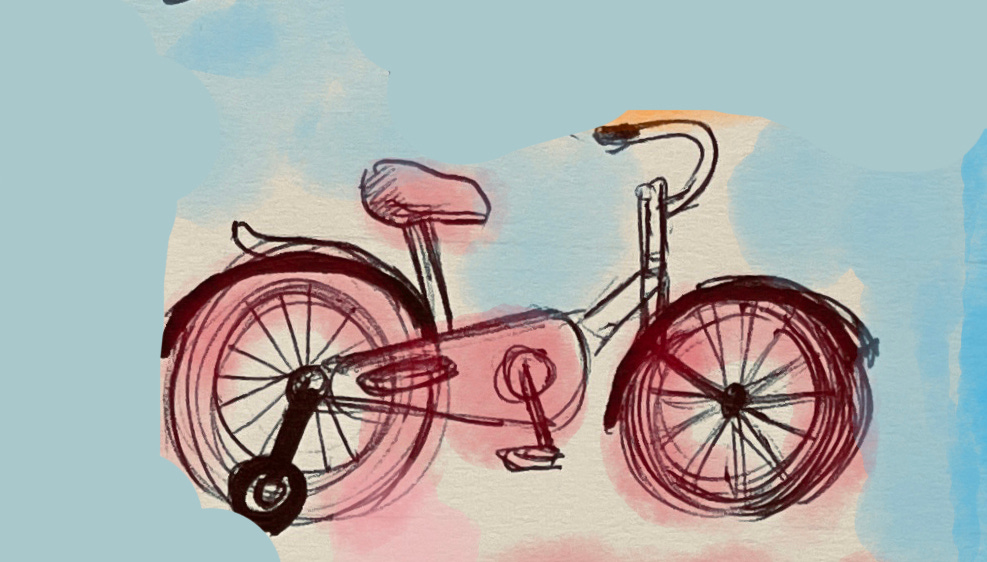Proximity, sticky stuff, hope and 3 hours
Issue 39
Welcome to issue no 39 of this newsletter where I share all the interesting ideas and happenings that got me curious. These are questions I am still exploring and often do not have answers yet. It is a newsletter for the curious reader. If that is you, do subscribe to the newsletter by clicking this ‘subscribe now’ button below
1. Proximity jobs
Beyond tech there will be another dimension that will impact jobs that will get automated says McKinsey’s research. The jobs that need people to be in close proximity will be an additional element that will impact transformation in a post pandemic world. Think of these as “Proximity Jobs”.
“Jobs in work arenas with higher levels of physical proximity are likely to see greater transformation after the pandemic, triggering knock-on effects in other work arenas as business models shift in response.”
Why does it matter?
Proximity is an important way in which humans decide to trust someone. It forms the basis of many critical roles in every sector where trust forms the first step of the equation and sometimes the final step. When some of these experiences disappear or get modified, it impacts the most fundamental value of what makes us human.
What are some “Proximity Jobs” that will shift?
The on-site customer interaction in retail stores, banks, and post offices, among other places. Some work in this arena migrated to e-commerce and other digital transactions, a behavioural change that is likely to stick. That changes the way we experience in-store shopping. It will impact how we experience caregiving in hospitals.
Customer-facing workers in hotels, restaurants, airports, and entertainment venues. In the longer term, the shift to remote work and related reduction in business travel, as well as automation of some occupations, such as food service roles, may curtail labor demand in this arena.
What happens to office work? There will be huge impact on jobs in the office - that depend on proximity. Several white collar jobs have already changed forever as businesses have learned to do Sales over Zoom calls. Hiring is done by algorithms and onboarding is also done over videoconferences. But there will be more.
2. Skills or confidence - what gets you started?
I see so many parents in the neighbourhood taking their children for tennis, chess, music, painting, ballet, football. They do this often after attending “coaching” classes for their school subjects. They attend school and these classes to blend learning, yearning and earning needs.
Learning needs are subjects I studied in school but have never directly used to earn a living. Earning needs refer to every credential that you post on LinkedIn. These are what an employer values in you. Yearning needs are those that we wish to build that fall somewhere in between learning and earning. When you take tennis lessons or work with a life coach, they address aspects you yearn to build in.
What gets you to start applying the skills? Do skills get you started or do you need more of confidence to start doing something. You need both - skills and confidence but the method of building them varies.
Skills and confidence are like two wheels of a bicycle. The bicycle I have drawn, has the “training wheels” fixed to the rear wheel. The training wheels are a metaphor. Do they build skills or are they meant to make you confident?
“The Doing Show” on Saturdays at 6:45pm
Every Saturday at 6:45pm my friend Joshua and I @AbhijitBhaduri are on this new app called Clubhouse with The Doing Show. We talk about how to start doing stuff you keep shelving. After three episodes of this live show, I have something to share with you. We have explored some interesting questions with the audience. Does seeking feedback, help or hinder you when you are a beginner? Will you learn and feel more confident if your teacher is an expert or a fellow learner?
Joshua and I jointly explore these aspects with the audience.
What we have learned is available to you
I will write about some key insights based on what we have learned through those eclectic conversations. The ideas will be shared on my weekly newsletter on LinkedIn.
I have started drawing the outline of the article. Yes, all articles begin with a sketch. The nervous mountaineer watching a fellow mountaineer fail was the first imagery that came to mind. You can get the newsletter as soon as I complete writing it. Get it in your mailbox.<Click this and hit subscribe>
Read why commenting is easier than doing something about it
3. Sticky learning
Do you sometimes wonder why you cannot recall all the stuff you read? Why all the learning does not STICK? Then this segment is for you and me. Reader Jairam Kulkarni recommended a book called Make it Stick. The site is called CultOfPedagogy.com where a teacher read this book in the summer of 2015 and made some notes and videos.
The book Make it Stick has some interesting ideas about how to remember what you learn - and no this is not rote learning. Rote learning is mechanically recalling what you read. This book is about retrieving information when you need to. Read more
Some ideas you can try:
Quizzes are powerful ways to make learning stick. When you teach someone something, add a quiz (not a multiple choice quiz). But it should be something where the person has to explain the idea in their own words. That is a powerful way to make learning stick. The process of trying to retrieve skills and information from memory reinforces the learning more effectively than simply reviewing it. Learning will be better if students have to try to recall the information instead of just recognising it.
Practicing the new skill regularly helps. Doing 5 math problems every day for four days is better than doing 20 of them on one day.
This teacher made videos of her reflections about the various chapters in the book. This was her reading for the summer of 2015. She made some videos about the book <watch them>
4. The coach must build hope and optimism
The role of a coach is often looked at purely from the lens of skills and performance. The real value of the coach as a human being is equally important when it comes to success of the person being coached - the coachee.
Does your coach need to be an expert?
Not at all. Here is what is the advise given to the coach. “The client is the one who is behind the driver’s wheel; they are in complete control of when they want to move forward, when they want to turn, stop or change direction. You as the coach, you are in the passenger seat. And although you may have a map or GPS device that helps to navigate, ultimately it is up to that client to be the expert, to be the expert in their own life to drive that vehicle.”
If the coach is an expert in the same area you wish to get stronger in, you start walking on the same path as the coach did. Organizations make this mistake ever so often when they get someone who has “been there, done that” as the coach.
How can the coach get out of the trap?
The coach needs to go beyond the skills and credentials conversation. See the sketchnote below.
In my role as a coach to individuals, (especially as they go through transitions in their career), building hope and optimism helps the coachee to move from one phase of their career to another.
Crafting Careers
Society for Human Resource Management SHRM makes its debut on Clubhouse, the hot new social app that has taken the world by storm. On Monday 22 Feb 2021 at 7pm IST I will join my co-host Debabrat Mishra known as @D_Brat to explore the question
“Crafting Careers: What really works today”. We will be joined by the CEO of Randstad India @Paul_DupuisRSTD
Clubhouse app users can join by clicking this link https://joinclubhouse.com/event/m2QWgq2p
Recommended: A three-hour-podcast
Is it possible to have a a terrific leader in a failed company
Should a startup hire from a #MarketShaper?
How to network if you have not gone to those elite schools and don’t get invited to the networking dinners?
These and many many more questions that listeners asked the duo on a Clubhouse chat have been answered here.
Marc Andreessen and Ben Horowitz (of a16z fame) appear on this podcast.
The podcast is THREE HOURS long. But it is totally worth it. I recommend you invest these three hours
Five Skills for the Digital Workplaces
Ankit Durga is the Co-founder and CEO of Skillr, a talent intelligence platform that helps organisations discover and develop future-ready behavioural skills.
An INK & Global Social Benefit Institute Fellow, Ankit has been recognized by MIT for creating inclusive, technology-led training solutions for the digital economy. He is an alumnus of The Doon School, Delhi University and Harvard's Executive Program for Strategic Nonprofit Management.
I will be chatting with Ankit about what those five skills are (Hint: They are all Behavioral Skills) and how to build them.
Don’t miss the chat. Follow me on LinkedIn and you will be notified. See you on Wednesday 24 Feb 2021 at 7pm on my LinkedIn page (follow me on linkedin.com/in/abhijitbhaduri)
That is all for this week. I hope you have a week where you meet generous people who fuel your curiosity and trigger you to pay it forward. See you next Monday at 9:00am IST. Do tap on the heart button below to let me know if you liked this edition. And if you have a comment, I can’t wait to read it. Do leave a comment.
Bye for now
@AbhijitBhaduri









